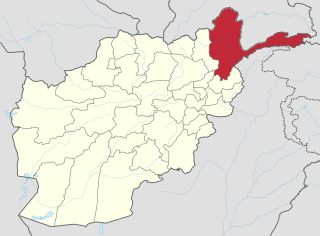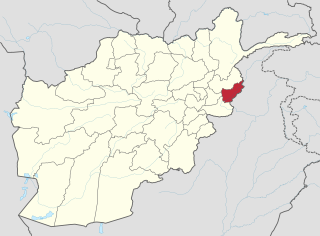 W
WPresidential elections were held in Afghanistan on 5 April 2014, with a second round held on 14 June. Incumbent President Hamid Karzai was not eligible to run due to term limits. The registration period for presidential nominations was open from 16 September 2013 until 6 October 2013. A total of 27 candidates were confirmed to be running for office. However, on 22 October Afghanistan's Independent Election Commission disqualified 16 of the candidates, leaving only 11 in the race. By April 2014 three candidates gave up the race and decided to support some of the eight remaining candidates. Opinion polls showed Abdullah Abdullah and Ashraf Ghani as the front-runners and indeed the results of the first round of the election had Abdullah in the lead and Ghani behind him. The second set of results came after the run-off on 14 June, two months after the first round. Preliminary results were expected on 2 July and the final result on 22 July. However, widespread accusations of fraud delayed these results. As a result, John Kerry, then United States Secretary of State, mediated the negotiations between the two final candidates, Ghani and Abdullah. After a series of negotiations and talks between Ghani, Abdullah and Kerry, the two candidates agreed to sign an Agreement to form a National Unity Government based on 50–50 power sharing. As a result of that political agreement, a separate position was created for Abdullah as Chief Executive. The National Unity Government's term will run out after the next Afghan presidential election is held in September 2019.
 W
WOn 2 May 2014, a pair of mudslides occurred in Argo District, Badakhshan Province, Afghanistan. The death toll is uncertain, the number of deaths varying from 350 to 2,700. Around 300 houses were buried and over 14,000 were affected. Rescuers responding to the initial mudslide were struck by a second mudslide, which hampered rescue efforts.
 W
WThe 2014 Gaza Valley airstrike was a friendly fire incident that took place in Zabul Province, Afghanistan on 9 June 2014 when five U.S. troops and one Afghan interpreter were killed when a B-1B Lancer bomber inadvertently dropped laser-guided bombs on their position during a firefight with Taliban forces. U.S. and Afghan government forces were in the Gaza Valley area of Arghandab District conducting security operations in advance of the 2014 Afghan presidential elections when they came under attack from Taliban militants, sparking a firefight. An American air controller on the ground requested close air support from a B-1B bomber flying in the vicinity to support a team of soldiers maneuvering on a ridge. The U.S. aircraft dropped two guided bombs on the position, killing the team of Americans and an Afghan soldier.
 W
WThe following addresses the events in Northern Afghanistan between April 2009 and 2014. While this part of the country had long been relatively peaceful compared to the all-out war zones of the south and east, tensions would flare up again in 2008 when the German soldiers deployed to the area came under attack more often, leading to the deaths of the several soldiers. Previously hindered by national caveats, the deteroriating security situation prompted the German-led Regional Command North to launch a series of operations to take on the rising insurgency. Concerted operations began after an insurgent attack on PRT Kunduz within minutes of German Chancellor Angela Merkel's departure from a visit. Within two years, the German presence would be doubled and additional reinforcements from the American ISAF contingent were called in, including heavy German armoured vehicles and US aviation assets, allowing for a more aggressive approach towards the insurgency.
 W
WThe Afghan film industry produced fifteen feature films in 2014. This article fully lists all non-pornographic films, including short films, that had a release date in that year and which were at least partly made by Afghanistan. It does not include films first released in previous years that had release dates in 2014. Also included is an overview of the major events in Afghan film, including film festivals and awards ceremonies, as well as lists of those films that have been particularly well received, both critically and financially.
 W
W2014 Kunar Offensive refers to a 2014 armed conflict of the ongoing War in Afghanistan, between the Afghan Army and a terrorist group, Tehrik-i-Taliban Pakistan (TTP). It occurred in the Dangam district of eastern Kunar province, in Afghanistan bordering on Pakistan.
 W
WThe war on terror, also known as the Global War on Terrorism and U.S. War on Terror, is an international military campaign launched by the United States government after the September 11 attacks. The targets of the campaign are primarily Sunni Islamic fundamentalist armed groups located throughout the Muslim world, with the most prominent groups being Al-Qaeda, the Islamic State, the Taliban, Tehrik-i-Taliban Pakistan, and the various franchise groups of the former two organizations. The naming of the campaign uses a metaphor of war to refer to a variety of actions that do not constitute a specific war as traditionally defined. U.S. president George W. Bush first used the term "war on terrorism" on 16 September 2001, and then "war on terror" a few days later in a formal speech to Congress. In the latter speech, George Bush stated, "Our enemy is a radical network of terrorists and every government that supports them." The term was originally used with a particular focus on countries associated with al-Qaeda. The term was immediately criticised by such people as Richard B. Myers, chairman of the Joint Chiefs of Staff, and more nuanced terms subsequently came to be used by the Bush administration to publicly define the international campaign led by the U.S. While it was never used as a formal designation of U.S. operations in internal government documentation, a Global War on Terrorism Service Medal was issued.